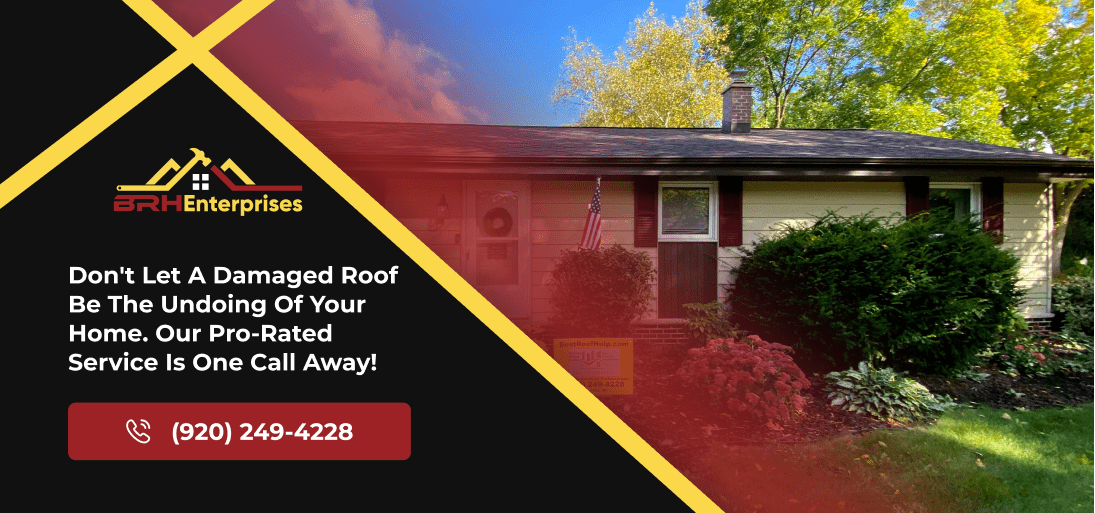The Ultimate Guide to Roof Deck Insulation: Benefits and Techniques
Estimated Reading Time : 5 Min.
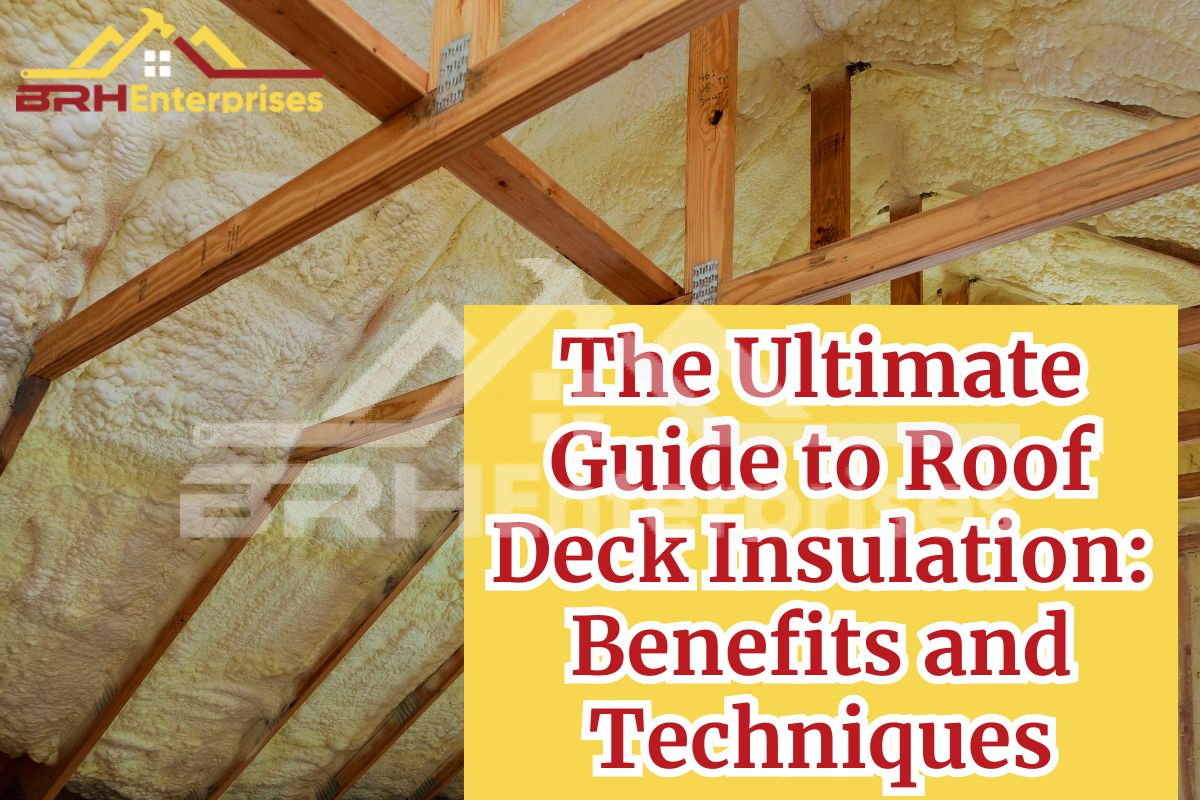
Are your energy bills skyrocketing? The issue might be inadequate roof deck insulation. As a homeowner, it is important to know that a poorly insulated roof can cause up to 25% of a home’s heat to be lost. That’s why, in this blog post, we’ll explore roof deck insulation in detail, including its benefits, various techniques, and the best materials to use.
What Is Roof Deck Insulation?
Roof deck insulation is installed on the top, or underside of the roof deck, usually in the attic space. Its main purpose is to minimize heat transfer through the roof, which helps maintain a comfortable indoor temperature and lowers energy bills.
To minimize condensation, a little gap must be left between the insulation and the roof deck for optimal insulation effectiveness. Using a vapor barrier can also offer further moisture protection.
What Are The Benefits Of Roof Deck Insulation?
1. Energy Efficiency:
- Reduced Heat Loss: In winter, the insulation prevents heat from escaping, which lowers energy bills and keeps your home more comfortable.
- Reduced Heat Gain: In summer, it helps keep your building cooler by keeping cold air in, reducing the need for air conditioning and saving you money on energy costs.
2. Durability and Longevity:
- Protection From Extreme Temperatures: Thermal barriers such as roof deck insulation shield the roof and building from issues like melting snow and ice dams that can cause leaks and damage.
- Reduced Maintenance: By minimizing heat transfer and weather-related damage, insulation helps extend the roof’s lifespan and reduces the need for repairs and other maintenance efforts.
3. Sustainability:
- Lower Carbon Footprint: Insulation lowers your need to run heating and cooling systems, making buildings more eco-friendly and reducing their carbon footprint.
4. Noise Reduction:
- Quieter Spaces: Insulation absorbs sound, cutting down on noise pollution and making your living space more peaceful.
5. Moisture Control:
- Prevents Mold and Mildew: It regulates humidity and prevents condensation, reducing the risk of mold and mildew growth.
Types Of Roof Deck Insulation
Now that you know the importance of insulating your roof deck and roof in general, here are the different types of insulation you can choose from:
#1. Blanket Insulation
Blanket insulation is made of rolls of fiberglass or mineral wool. It’s flexible and can fit into different spaces, making it good for roofs with odd shapes. It’s also often used in homes because it’s cheap and easy to install. However, it might not stop air leaks as well as other options, which can affect how well your home stays warm or cool.
#2. Rigid Foam Board Insulation
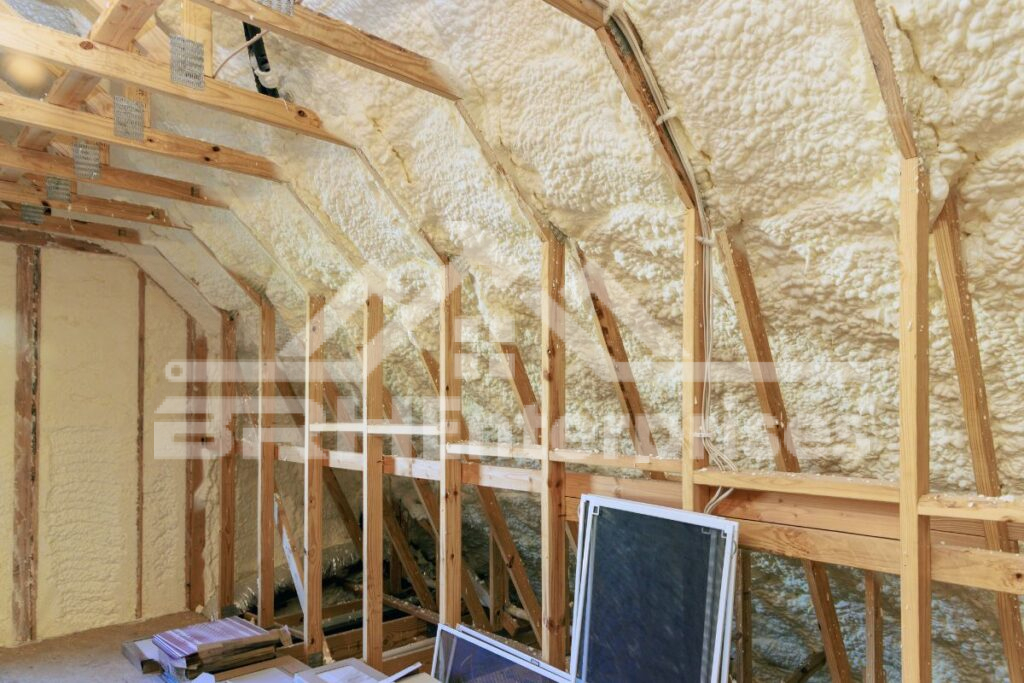
The second option is rigid foam board, an insulation material like expanded polystyrene (EPS), extruded polystyrene (XPS), or polyisocyanurate (Polyiso). These boards go above the roof deck and are very effective at keeping heat in or out. They are strong, resist moisture, and can be used on many roofs, including flat ones.
#3. Loose-Fill Insulation
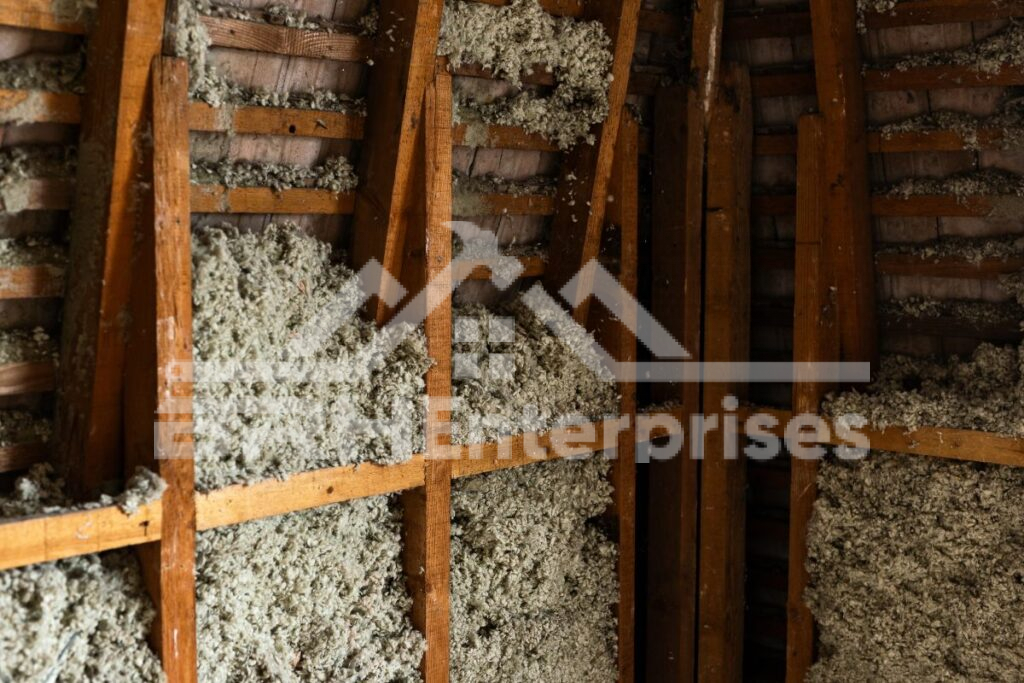
This type of insulation is formed through small pieces of materials like cellulose, fiberglass, or mineral wool that are blown into the roof space. It’s good for filling in irregular spaces and gaps, making sure everything is covered. It’s often used in attics and can be put in without changing the structure of the roof by much.
#4. Radiant Barrier Insulation
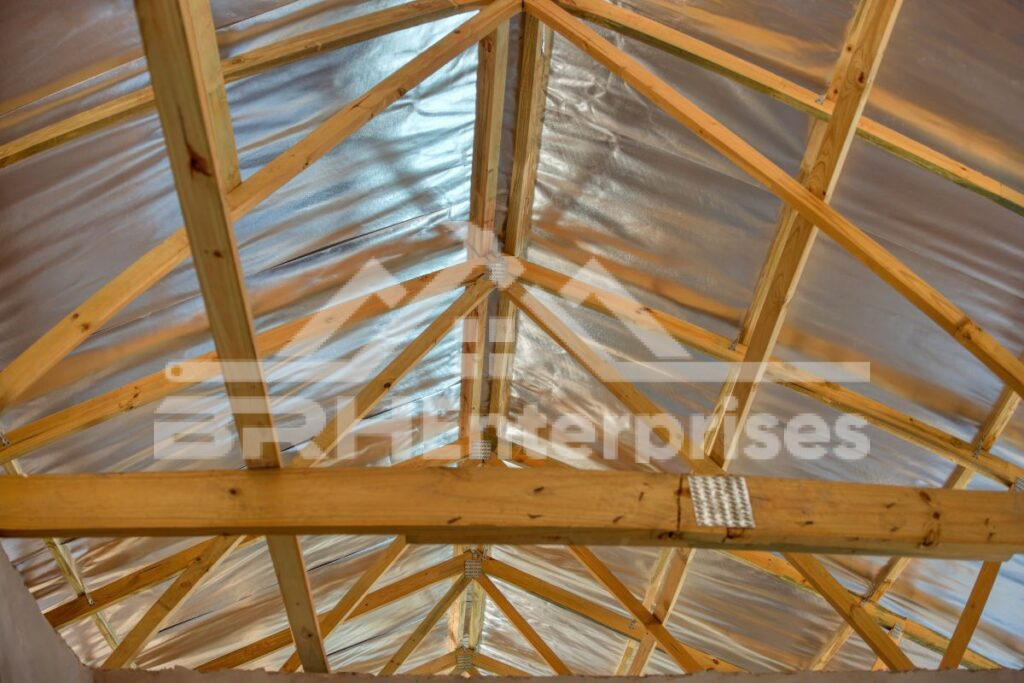
A radiant barrier, or more commonly known as reflective insulation, is made of a highly reflective material, like aluminum foil, that reflects heat away from the roof. It’s good for reducing heat gain in hot climates but has a lower R-value compared to other types. It’s often used alongside other insulation materials in order to prioritize energy efficiency.
#5. Structural Insulated Panels (SIPs)
Structural Insulated Panels (SIPs) are a high-performance building material made of rigid foam insulation between two OSB layers. They are precisely manufactured for various designs and offer excellent energy efficiency, strength, and resistance to mold. With quick assembly and minimal thermal bridging, they are a sustainable choice.
Techniques For Installing Roof Deck Insulation
Different methods can affect how well your roof insulation works. Here are two main ways to install roof deck insulation:
1. Above-Deck Insulation
Above-deck insulation puts insulation directly on top of the roof deck. It’s usually used in new buildings or occurs during a roof replacement. The common types of insulation used for this method are rigid foam boards made from polyisocyanurate, extruded polystyrene (XPS), or expanded polystyrene (EPS).
Benefits
- Better Insulation: It creates a continuous layer of insulation, reducing heat loss.
- Temperature Control: It helps keep the building’s temperature stable and protects the roof from extreme temperatures.
2. Below-Deck Insulation
This method is used in existing homes where the roof is already up. Insulation is installed underneath the roof deck, within the attic space. The most common type of insulation used for this method includes spray foam, fiberglass batts, or blown-in cellulose.
Benefits
- Easier to Install: It’s easier to add to existing roofs without removing old materials.
- Cost-Effective: It’s usually cheaper than above-deck insulation.
- Easy to Inspect: You can easily check the roof deck for problems from the attic.
3. Hybrid Approaches
Hybrid insulation uses both above and below-deck methods of insulation. This is great for extreme climates or high energy efficiency needs.
Benefits
- Best Performance: Combining both methods provides the most optimal results.
- Flexible Design: It works well with different building styles and designs.
- Energy Savings: It can reduce energy bills and lower your carbon footprint.
A Closer Look At Different Insulation Materials
#1. Fiberglass Insulation
The first option is fiberglass insulation, made from tiny glass fibers and comes in batts or loose-fill form. It’s good for keeping the heat in and reducing noise, is fire-resistant, and is not too expensive. However, it causes rashes if you don’t wear the property safety equipment, and it may settle over time, making it less effective.
#2. Cellulose Insulation
Cellulose insulation, which is made from recycled paper treated with fire retardants. It comes as loose fill and can be blown into walls and attics. It has a moderate R-value, is eco-friendly, and reduces noise well. However, it can settle over time and might be more prone to moisture damage than other types.
#3. Spray Foam Insulation
The next option is spray foam insulation, which starts as a liquid and expands to form a solid, creating an airtight seal. It has a very high R-value, offers great thermal and air sealing, and works well in hard-to-reach areas. However, it’s more expensive and needs professional installation.
#4. Mineral Wool
Mineral wool, or rock wool, is made from melted rocks or minerals. It is excellent at keeping heat in, preventing fires, and reducing noise. It doesn’t burn, can handle high temperatures, and doesn’t release harmful fumes. It also resists moisture, which helps stop mold and pests.
#5. Polyisocyanurate (Polyiso) Insulation
Polyisocyanurate, or polyiso, is a rigid foam board insulation with a high R-value. It’s very effective at keeping heat in or out. Often used on flat roofs, it creates a continuous layer of insulation above the roof deck, reducing heat loss. Polyiso is also moisture-resistant, lightweight, and easy to handle.
Conclusion
Adding roof deck insulation can provide enhanced comfort and property value while benefiting the environment. By knowing the types available and the different installation methods, you can make a smart choice for your home. Whether you DIY or hire a pro, investing in roof deck insulation is a wise move for your home’s future.
In need of professional roofing services? Contact the team at BRH Enterprises! With our years of experience we’re capable of offering solutions that meet your demands. Call us today at (920) 249-4228 and put your trust in BRH Enterprises for all of your roofing needs.
